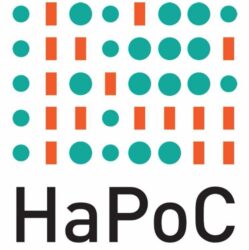Joint PhD Scholarship on History and Philosophy of Computing (Université de Lille and University of Kent)
We rely on computers to manage our communication, access to information, finances and even health. Despite recurring reports of software failures, programming mistakes and unintended consequences, most of our understanding of how computers work is of a highly technical nature. Consider, for example, the rich conceptual arsenal that programmers have developed to help them control what computers do. Where do these programming concepts, methods and practices come from? What are their inherent limitations? And can they provide a reliable way of controlling computers, as the word “science” in “computer science” suggests?
We are inviting applications for a 3-year funded PhD position in History and/or Philosophy of Computing, jointly supervised by Liesbeth De Mol (CNRS – (UMR 8163, Université de Lille), Tomas Petricek (University of Kent) and Shahid Rahman (UMR 8163, Université de Lille).The position will be shared between Université de Lille and University of Kent in Canterbury in the framework of the call for proposals of co-supervised doctorates between I-site ULNE and the University of Kent (
uploads/2019/01/Call-for-co-supervised-doctorates-Kent-2019.pdCall for co-supervised doctorates 2019). You will be expected to spend two years in Lille and one year in Canterbury. The scope of the project is open-ended and we encourage interested applicants to informally contact us as soon as possible in order to develop a more detailed research proposal.
Possible research topics
We believe that understanding the full complexity of computing and programming requires a rich inter-disciplinary approach that is aware of the history and origins of computing concepts, understands their technical nature and reflects on them from a philosophical perspective. The following list is just a brief example to illustrate the kind of insights that we can gain from considering computing and programming in context:
- What is a computer program? A program exists as a physical entity stored in a machine, formal entity used for reasoning about it, but also as a rich socio-technological entity. Understanding programs cannot be limited to just one level, but requires pluralistic approach studying all three levels, but also their interactions.
- Programs are constructed using programming concepts such as types, processes or objects. What is the nature of these entities and how do they evolve? For types are imported from logic, but the way they are used in modern programming is very different from their logical predecessors. Do concepts like types share characteristics with mathematical entities like polyhedra, physical entities like electrons, or are they a wholly different thing?
- What is computation? How to account for the extension of the scope of what can be computed since the rise of electronic general-purpose computation in light of the Church-Turing thesis? How to relate what is theoretically computable (i.e.. Turing computable) to actual computing and programming practices which do not necessarily fit into the (older) framework of a deterministic one-tape Turing machine.
- What is the nature of the methodology of computer programming? Does it follow a form of scientific method that allows it to increase its problem solving ability? Is computer programming adopting ideas from science, engineering, art or a combination of these? Is there historical evidence that would support either of the views?
- What kind of limits do we need to take into account in computational practices? Is it just the theoretical limitation or should we also account for the physical, economical and social limitations? What are the consequences of those limitations for the development of the field?
- What is the significance of the human user of computer programs? How do we account for this “user” in developing notions of computation and computer programs? To what extent is the user shaped by a program and the practice underpinning it (industrial, scientific or other), and vice versa?
How to apply
Interested applicants should contact Liesbeth De Mol (liesbeth.demol@univ-lille3.fr) and Tomas Petricek (t.petricek@kent.ac.uk) well before March 20 2019. If you would like to be considered for the project, please send us a brief 1-2 paragraph summary of your research interests and a one-page CV. We also welcome informal inquiries before the official proposal submission.
